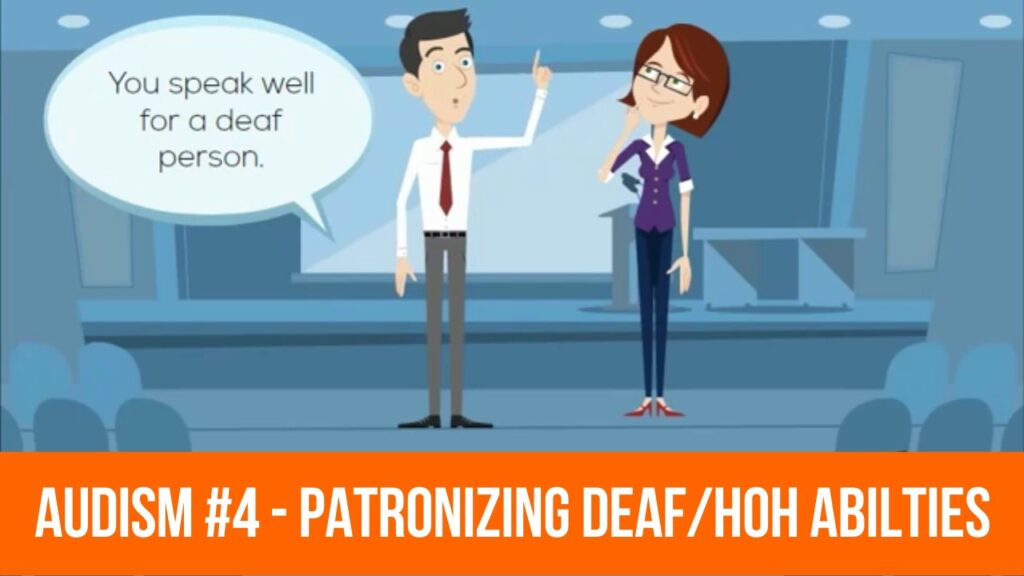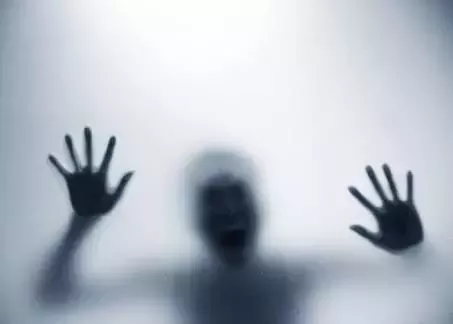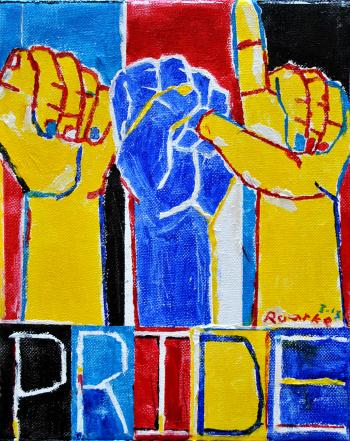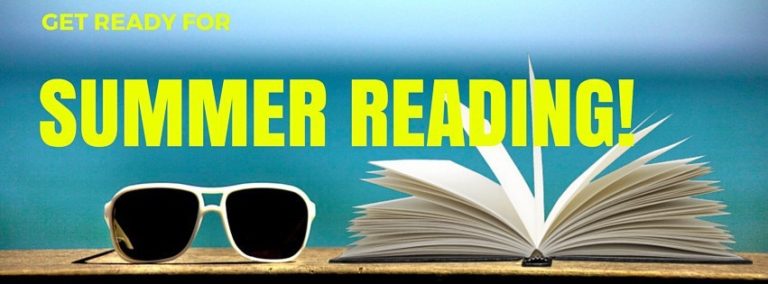Marginalization of the Deaf: Audism and Surdophobia
I recently learned two new terms—Audism and Surdophobia. After grasping their definitions I realized how these theories have affected me as a Deaf man and I became overwhelmed with emotion. For thirty years I’ve felt their forces but never had a label to go with the feelings. Being able to name something is extremely cathartic.
Audism and Surdophobia are two closely related behaviors that have disadvantaged me for the last three decades; and haunted the Deaf community throughout time. Audism is a type of discriminatory thinking suggesting deaf and hard of hearing people are inferior. My first experience with audism happened soon after my first hearing loss. The principal of my school refused to grant me access to a phone that had a capability of increasing the volume of a call allowing me to speak to a parent. It was shocking that, to her, I was not worth this simple accommodation and that she did not put the needs of my students first. I was forced to petition my union rep to get the California Teacher Association to pressure the principal to allow me this access. Three months later, I got the phone.
When my wife, Jila, who was also deaf, asked her oncologist for an interpreter, not wanting to be bothered by what that involved, he told her, “Read my lips.” She was a proficient lip reader, so she reluctantly agreed. I asked her, “How much did you understand,” she signed, “Little bit.”
Jila, who grew up oral, in Iran, was even more impacted by audism than I. It is ingrained in Iranian culture and parents are terrified to have an imperfect child so as not to be shamed. Jila agreed to learn sign language with me, but she warned: “No faces!” One of the very important parameters of sign language is facial expression, signifying grammar and emotion but these outward gestures embarrassed her, dictated by the severe audism with which she was raised, so this impaired full, meaningful communication with each other.
When I’m having a conversation with my brother, his wife will often rudely interrupt and say, “Tone down your voice!” Her compassion or desire to understand is completely lacking. How can you “tone down” something you cannot hear? Another “favorite” of mine is trying to follow a conversation that ends in laughter and having no idea why it was funny. I would ask the person nearest me, “Why is everyone laughing?” and their dismissive answer was always, Never mind. I’ll tell you later, or it’s not important. They likely have no idea how disparaging this is, but this indifference is a perfect example of audism in action and disconnects us from our families and society in general.
For more than a century the educational philosophy was to forbid ASL to be taught in schools for the deaf; this is an example of audism being enforced by the very community it professes to help. Instead they devoted their resources to enforce lip-reading and speech therapy rather than teaching subjects in a language that could be understood.
More traumatic than audism is sudophobia, a term coined by Gary van Gils, a social worker in Holland, who defines it as a hostility, intolerance, or fear against Deaf people, Deaf culture, and the Deaf community, and resistance toward the sign languages used. It is an anxiety disorder where the individual is unaware of their fear of deaf people, and they exhibit avoidance behavior. After my hearing declined, one of my closest friends refused to see or talk to me again. My oldest brother shut me out of conversations, and my best friend told me, “My wife doesn’t want you in our home,” as if my deafness was infectious. At family events, my former wife avoids me as much as possible. I originally thought it was stress she harbored from our divorce, but I came to realize my hearing loss embarrassed her. At one event, everyone was seated at the table, chatting and laughing, leaving me completely in the dark, so I read the news headlines from my phone instead of trying to keep up with the conversation.
“How rude!” my ex-wife snapped.
“Really!” I retaliated. “I’m supposed to pretend I understand you all talking at the same time? What would you do if you lost your hearing and couldn’t understand anything anyone said to you?”
“Kill myself!” she retorted and turned away, continuing her conversation with our daughter. Her implication: death was preferable to deafness.
Many of the actions of audism are subtle, but they cut deep and erode one’s self worth and confidence. It is even apparent in Judaism from the very early years of the Talmud, the central text of Rabbinic Judaism and the primary source of Jewish law. The theology categorizes deaf people with the minor and the imbecile, teaching that the deaf are irresponsible and have no independent will. Consequently, deaf people are disallowed dealings requiring responsibility and independence; therefore, their legal claims against others have no validity. These deep-rooted beliefs became very clear for me personally when I approached my Rabbi requesting the synagogue provide an interpreter so that I could follow his sermons; I was ignored. I later joined TBS where deafness is central and naturally accommodated.
If you meet a deaf person in a situation where you need to communicate, ask them about their communication needs—believe me this will not offend or insult. These needs take many different forms since hearing loss manifests at many different levels. Some deaf people rely on lip reading although at best, a proficient lip reader can understand maybe 40% of a conversation. With today’s advanced technology translation apps are very helpful, or you can revert to the old fashioned method of paper and pen. And of course, if you are lucky enough to have an interpreter nearby – all the better. But the best solution to develop comfort around a deaf person is exposure, knowledge and understanding, then we can create an atmosphere of inclusion for a community of people that have been marginalized for too long.
Michael Thal is the author of two novels about the Deaf experience: Goodbye,Tchaikovsky and The Lip Reader.






When you say “I realized how these theories have affected me as a Deaf man and I became overwhelmed with emotion”:, I remember how the same thing happened to me when I discovered about 15 years ago that I had a disability called Nonverbal Learning Disability (NLD) which affected me for my whole life. It is basically a visual processing disability where you have spatial problems and you cannot visually process how someone is doing something by just observing (they have to tell you what they are doing).
Thank you for bringing out in the open things that the public is not aware of. Fingers crossed that knowledge will bring a change of attitude.
Anjali
Just wanted to mention that “surdophobia” was coined by Gardy van Gils. Her name is often misspelled as Gary by anglos.